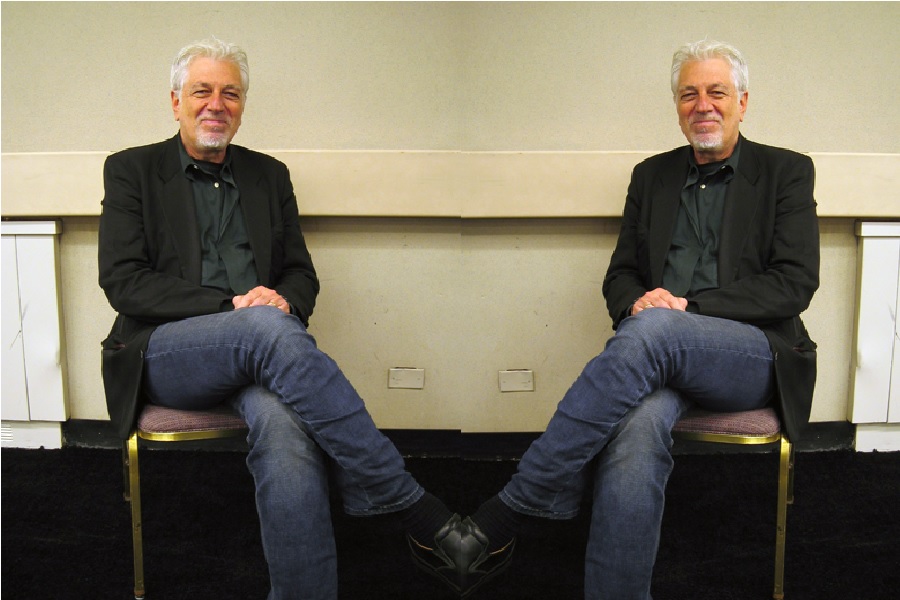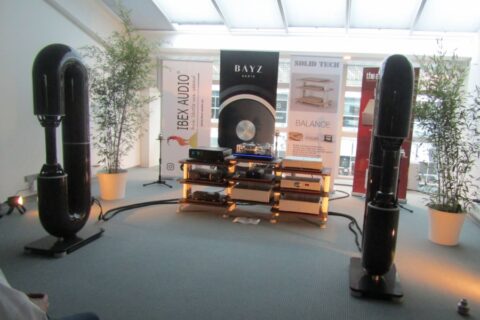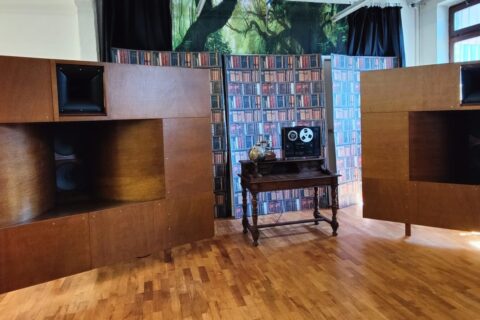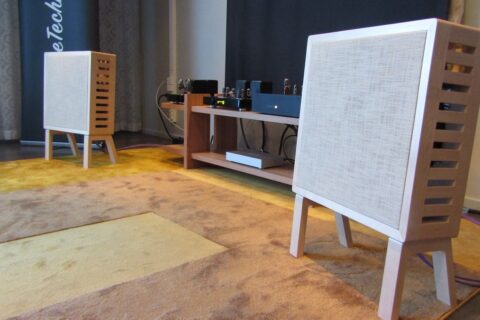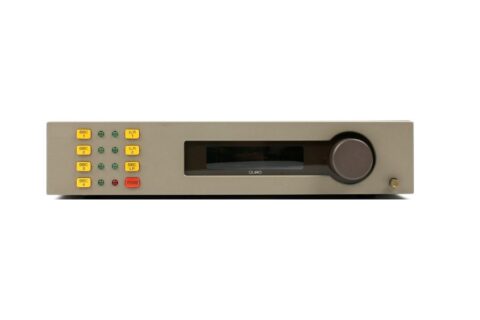The article was originally written by Jules L. Coleman, Professor of Law and Philosophy at Yale University, for the INNER paper issue (2010).
If you listen to a live performance, a direct feed of that performance into ‘recording monitor speakers’ and then a recording of that performance, you will hear three very different ‘performances.’ The three are not unconnected of course. The direct feed and the recording are causally connected to the original event; more importantly, they are both (in a way that needs to be further clarified) representations of it. (Of course, we are presupposing that there is a unified ‘original’ event that a recording is a representation of. This is not always the case of course as some recordings are themselves manufactured conglomerations: the rhythm section is recorded in a studio in NYC; the singer in a London studio and soloists and background singers at various venues around the world.)
If we focus only on cases in which there is an ‘organic’ original performance, in asking what is home audio system for, we are asking at least in part which, if any, of the events – the original event, the direct feed of it to monitor speakers, the recording of it – should a system seek accurately to reproduce or (to use what I take to be an entirely inappropriate, if nevertheless, ubiquitous term) to recreate.
Conventional wisdom identifies the relevant source as the recording (committed to disk or vinyl). A good audio system is measured by its ‘fidelity’ to the recording. Fidelity to the recording is the aim, and revealing or excavating as much detail as possible from the recording is the aspiration. There are thus two parts to the conventional view, and while they are not necessarily connected, they typically are. I reject both the aim and the aspiration that the conventional view attributes to audio reproduction.
I reject privileging the recording in this particular way; and I reject especially the idea that the best sound systems are like tools – microscopes or derricks – seeing into the recording or excavating the last detail from it. Of the two mistakes that together constitute the conventional view, the audio system as a retriever of information – a tool for unearthing and revealing details – is perhaps the greater failing, the one least connected to the very idea of music and its role in our lives. Let’s take a look at the lesser failing first.
Why privilege the recording? Why should the aim of an audio system be to present what is on the recording? The recording is merely one person’s conception of the event (the engineer’s or producer’s, and even when it is mixed and remixed in consultation with the artist it is all done ex post – after the event). I have heard literally a hundred mixes of the same performance. They are all like photographs of the event. A choice has to be made by engineer and artist and often that choice is not made to reflect musically significant features of the performance. This much I know from experience.
The recording is important of course in part because it is the only document available to all of us of the original performance; it is the one made available to us all –publicly. It is the most important bit of ‘evidence’ we all have of the original event. That is its significance. It is hard to see why fidelity to ‘it’ should be seen as something intrinsically worthwhile or valuable. To be sure, it is the main materials we have as to those aspects of the performance that are musically valuable and which constitute the performance – including the artistic intention. If anything, what we want an audio system for is to help us again access to those features of the performance that define it as the performance that it is and which picks out those features of it that are musically significant and valuable. I will return to this in a moment.
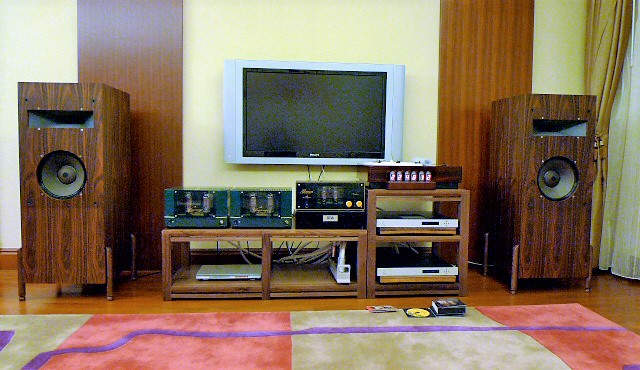
For me at least audio is not for dispassionate discovery. In other words, even were fidelity to the recording part of the aim of an audio system, why would we identify fidelity with a kind of excavation of detail and information? This would make listening a kind of scientific activity of uncovering or discovering what is on the disk much in the manner one might look to uncover new information in historical sources – without regard to the point of uncovering the information. There has to be a musical point to it all. And it is not obvious that the musical point requires anything like uncovering ‘details’; it requires uncovering musically relevant details. And not just as details, but as parts of a resolved musical whole. Something capable of conveying musical information, or expressing a narrative – in words or music or both.
The point of the experience moreover – at least for me – is not scientific in any sense. While listening to music has an intellectual or cognitive dimension — it can be a form of learning and knowing – it is for me ultimately a matter of passion and emotional engagement. One cannot sit transfixed and transported by audio because it is intellectually rewarding. Ultimately, audio succeeds emotionally: by passionate engagement and immersion. I choose audio because I am passionate about music and engagement with music relaxes, rejuvenates, repositions and reinvents me. One does not listen to an audio system to excavate but to experience emotions and to feel passion. A system that cannot immerse one in a musical experience is of no interest – to me.
One might object that I am overemphasizing passion and the emotional response one has to playback. Some listeners might secure that response from a Bose radio and no one in their right mind thinks that a Bose radio is a musically worthy audio system.
Well for some people, a Bose radio is good enough: too bad for them, perhaps, or lucky them, perhaps. Certainly, the costs they incur relative to their satisfaction level is pretty damn good. But surely, there is something wrong here. And there is. It is a little like the familiar objection to utilitarianism that if maximizing satisfaction or pleasure is the aim of action, then one who could bring satisfaction to himself by pushing a pleasure pin should not only do so but may in fact be obligated to do so. Surely this is objectionable because it fails to give proper weight or appreciation to the many diverse sources of value or pleasure and does not distinguish among them.
The same is true in the case of audio reproduction. It is not enough that listening be emotionally engaging. It must be engaging for the right reasons and in the right way. That means that the listener’s reaction – the pleasure, joy or immersion, must be connected to musically significant and valuable features of the musical experience. One’s reaction must in part be a function of the insight one gets into the artistic intention. One can get goose bumps from a Bose radio I imagine (I just get a headache); but one cannot follow a bass-line, or hear the theme repeating throughout a piece in a way that reveals the depth and nuance of the creative art.
So if I may tie the two ideas together. I am rejecting the idea of privileging the recording and rejecting the idea that the aim of an audio system is to be faithful to the recording in the sense of extracting the details that happened to be captured on it. In its place I am suggesting that the recording is important as the only publicly available ‘record’ of the recording and thus all we have available to us to uncover relevant features of the original event. Which features of the original event should we be looking to uncover?
Here my view depends on what we take an audio system to be for. For me an audio system is designed to provide me with a certain kind of passionate immersion or engagement: with music and with musical experiences. This means that for me the system has to help me secure that experience. But that experience is itself a distinctive kind of experience and its distinctiveness comes from my being immersed and rejuvenated etc in light of musically important features of the experience. So one needs an account of what those features are. It is not enough merely to feel good when you put your system on – no matter how good you feel. An audio system is not for making you feel good simpliciter. It is for making you feel good for the right reasons and in the right way.
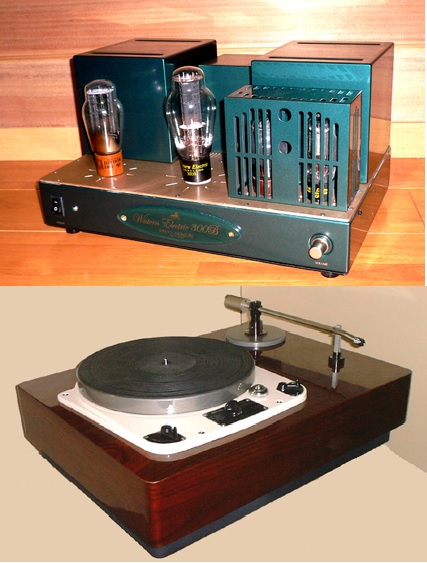
The idea here may seem too philosophical, but it really is simple. I played a lot of sports my entire life; and I received a great deal of pleasure (most of the time) doing so. But the sports differ and the kind of pleasures they bring about are related to one another, if somewhat different. There is something distinctive about golf say that is very different from football and there is something in its nature and the way that grabs on to some golfers that makes the experience nearly religious for them. Of course there are ways in which all sports differ from the way music and its reproduction bring us pleasure and immersion. That is all I am saying. An audio system has to connect us not just to pleasure, but to pleasure in virtue of what is distinctive of or in the nature or essence of music.
Do I have a view about what it is to feel good for the right reasons and in the right way when it comes to music? I have only the most modest thoughts on the subject. I do think that gaining access to the artistic intention is important to musical appreciation and true engagement. It does not matter whether one can articulate that intention: that is another matter altogether, left best to music critics and musicians. As for whether one experiences the passion and engagement in the right way, I have even less to say. I do know this: that is what a search for an audio system should really be all about.
It is a total waste of time in my view to be listening to see if preamplifier A is better than preamplifier B; whether speaker A is better than speaker C; and so on. Such a search, fed by reviewers, and especially by those audio magazines that have ‘Parkerized’ audio (as Parker has ruined the craft of writing on wine – and worse, adversely affecting wine making so that one can no longer tell where a new Cabernet was produced, eliminating the terroir in favor of a numerical ranking), is completely unconnected to the activity of listening to music: the value of music and the role it plays in our lives.
Looking for an audio system and learning how to appreciate music should go hand in hand. Ultimately one hopes to grasp what is distinctive of the kind of enjoyment, pleasure and connection with one’s emotional life that music can bring: as music. Then one knows what to look for in a music system. And when one knows that reviews of this or that piece are of little interest or value. One knows what one is looking for. A review might be suggestive that this is a place to look or not as the case may be. One is just looking to find the voice they hear in their head. When they find it, they know it. It’s as simple, and thus as difficult as that.
As a philosophical matter, I note two different issues that emerge from my view about home audio. First, the terms that are most often associated with audio, for example, neutrality, are entirely out of place. The virtues associated with neutrality and objectivity are fairness and justice. Listening to music in the home calls to mind other passions and virtues: love, sadness, joy, to name a few. These do not call to mind neutrality and objectivity.
Second, and more importantly (as I suggested above) it is not enough that one’s stereo system bring one joy, happiness or passionate engagement. In a sense it is of course, but it is not enough if one’s system does that in no part in virtue of its being a music reproduction system. Part of what it means for the system to succeed as a home audio system is that it creates passionate engagement and satisfaction in the right way – that is, as a result of its reproducing something of musical significance and value: more, it must do so in the right way causally, that is, in virtue of the way it recreates something of musical significance and value in the event it is reproducing. As I have made clear, that does not require fidelity to the recording, but what it does require is both beyond the scope of the current essay and something of philosophical interest and import.”
“This collection of essays by one of America’s leading legal theorists is unique in its scope: It shows how traditional problems of philosophy can be understood more clearly when considered in terms of law, economics and political science.” Cambridge University Press, 1988.
“There aren’t many people who could put up with my highly strung, obsessive personality, my peculiar and suspicious tastes and my passion for rocken ‘n’ roll, TV and golf.” Markets, Morals, and the Law, p. xvii.
Jules Coleman is Wesley Newcomb Hohfeld Professor of Jurisprudence, Yale Law School; Professor of Philosophy, Yale University; Visiting Distinguished Professor of Philosophy, Rutgers University. Professor Coleman teaches in the areas of philosophy of law; torts; law, language and truth; political philosophy; and rational choice. His books include Hart’s Postscript, The Practice of Principle, Oxford University Press, 2000; Risks and Wrongs, Cambridge University Press, 1992; and Oxford Handbook of Jurisprudence and the Philosophy of Law (with S. Shapiro), Oxford University Press, 2002.
His system consists of Shindo modified Garrard 301 TT and Shindo Arome Step up transformer; Shindo Catherine dual mono preamplifier; Shindo 300B Ltd mono blocks; Shindo and Silver Fi interconnects; Auditorium 23 and Silver Fi speaker cables; Shindo special order two-way with a 15” Altec 803c woofer (sealed enclosure), and an Altec 802B compression driver modified to be a field coil; Power conditioner: Mr. T. Room: 30 x 16 x 9’.


